Fostering a more sustainable business
In an overwhelmingly challenging era battered by climate change, companies like TCL are leveraging diverse and integrated green strategies and efforts to drive sustainable development.
Custom content is written, produced or curated by either a sponsor or by EI Studios, the custom division of Economist Impact. Such placements are clearly labelled as Advertisement, Advertisement feature, Sponsored content, Sponsor perspective, or words to that effect wherever they appear on our website or apps. Neither The Economist news and editorial team, nor Economist Impact's independent experts, have any involvement in the creation of this content.
Fostering a more sustainable business
In an overwhelmingly challenging era battered by climate change, companies like TCL are leveraging diverse and integrated green strategies and efforts to drive sustainable development.
Scientific consensus is overwhelming: our planet is warming, and we can all feel it. In fact, with an average temperature of approximately 15°C, the last time it was this hot, the woolly mammoths were roaming the earth, as might the hippopotami – during the Eemian period over 120,000 years ago, according to studies.
And despite the world springing into action in efforts such as the United Nations Sustainable Development Goals and the Paris Agreement, global temperatures continue to rise. The extraordinary global November temperatures recently, including two days warmer than 2°C above pre-industrial times, mean that 2023 is the warmest year on record, and scientists expect next year to be worse.
The truth is, our climate response has been nothing short of promise, but regrettably nowhere near enough action. Despite a brief drop during the pandemic, carbon emissions hit an all-time high last year at close to 37 billion tons with no sign of slowing down, according to the International Energy Agency. The UN projects that – based on progress of existing efforts – by 2030, global emissions are likely to drop by only 0.3% from 2019 levels. The challenge ahead is bigger than ever.
The UN projects that – based on progress of existing efforts – by 2030, global emissions are likely to drop by only 0.3% from 2019 levels. The challenge ahead is bigger than ever.
All of humankind needs to collectively resolve this in a rational, consistent, and resourceful manner. In TCL’s case, we have three principles underlying our climate strategy that have proven particularly impactful – and could potentially benefit fellow companies in their pursuit of green development.
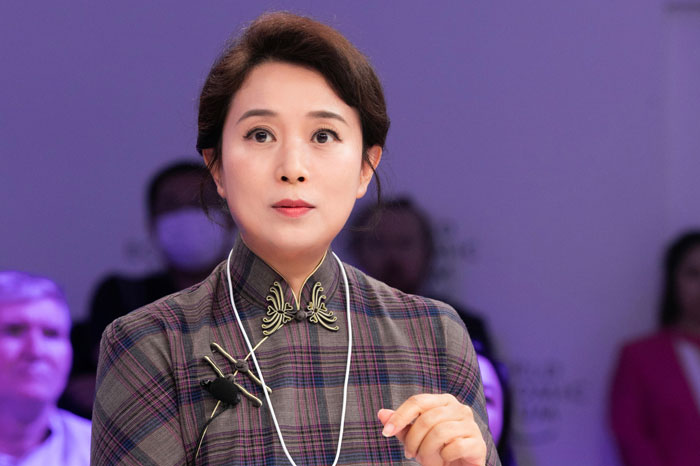
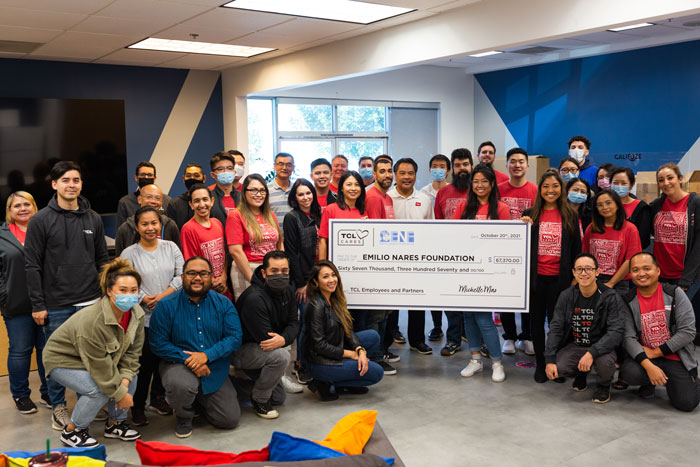
In our journey of 40-some years and counting, we have come to understand the uniqueness of each market, segment, partner, and consumer and know that there’s no one-size-fits-all. The same applies to the current climate challenge, and strategies should be comprehensive and customized to the business in terms of its operations and processes.
Over the years, TCL has been elevating its ESG management system to cover a range of core topics specific to who we are and what we do, including organizational governance, employee rights protection, health and safety, environmental protection, fair operation, consumer relations, as well as community involvement and development. It also includes non-financial indicators for relevant departments within the company and the industrial chain, taking into account their distinctive scopes and affairs.
On another hand, clear goals and plans are set and will be reviewed every five years to ensure TCL’s goal of achieving carbon neutrality by 2050. Last year, we also launched the global TCLGreen campaign to integrate green values into our long-term strategy and create a greener planet for all. Through concrete commitments and TCL’s integrated vertical model, we aim to reduce our environmental impact through greener products, greener manufacturing, greener industries and greener industry chain.
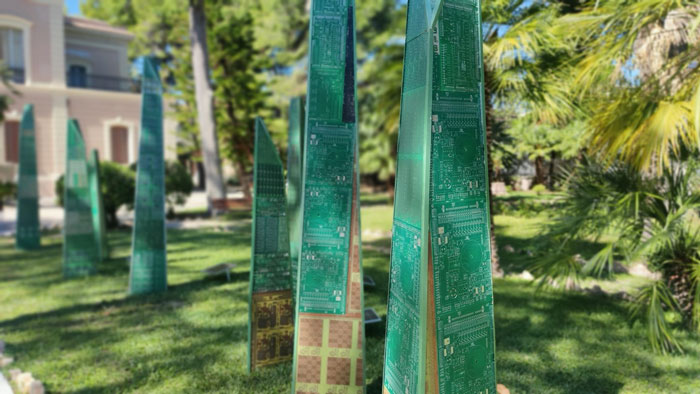
At the end of the day, climate change affects over 8 billion of us. Response action should therefore involve each and every one of us. In that regard, TCL believes in not only strengthening our own efforts, but also urging stakeholders – which in our case, include research institutions, non-governmental organizations, and individuals, particularly students and youth – to collectively shoulder responsibilities.
For students and youth, understanding the causes and impacts of climate change is the first step in shifting mindsets.
Education has an important role to play in driving the transition to a sustainable future. For students and youth, understanding the causes and impacts of climate change is the first step in shifting mindsets. After that, it is important we empower them with the knowledge, skills, values and attitudes needed to act as agents of change. Indeed, studies indicate that students display more behaviours beneficial for supporting sustainable change following periods of climate change education.
In establishing ecological partnerships with stakeholders and empowering youth, we launched “TCL Solar Low-Carbon Campus” through social value investing to facilitate green power generation and introduce renewable energy education in schools. The first batch was completed and connected to the grid in August 2022. To date, the project has enabled over 20 schools across China to install rooftop solar systems, which are expected reduce more than 32,257 tons of carbon dioxide in total during their full lifecycle – equivalent to planting 1.75 million trees.
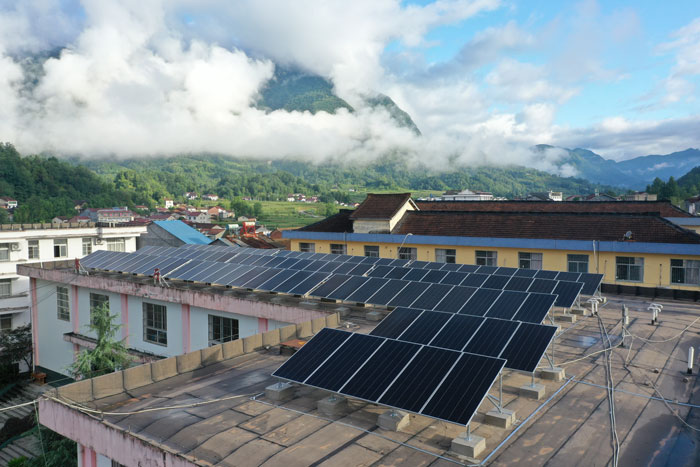
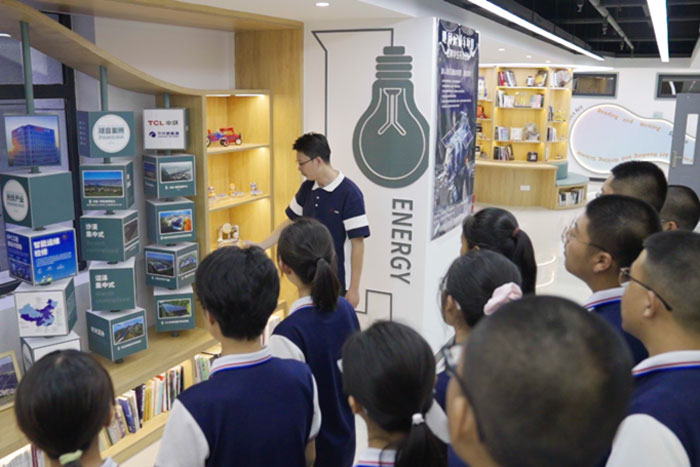
Beyond partnership, the next step is cultivating close co-operation with stakeholders. Collective action by different stakeholders is a prerequisite for effective climate action planning and implementation. They offer different viewpoints, knowledge, experiences, capabilities, and resources – all of which help to shape a holistic approach to developing and implementing strategies and measures to adapt to climate change.
To TCL, driving value co-creation in the supply chain is vital to advancing sustainable development of the industry. Throughout our green industry chain spanning procurement, logistics, warehousing, and financing, we collaborate with partners and suppliers in pooling resources and utilizing each other’s strengths, expertise, and networks. With help from suppliers and partners, in 2021, TCL established a new green supply chain financing model, integrating carbon accounting to transform our supply chain and meet low-carbon commitments.
Through continuous innovation, we also introduced digital products for energy and dual-carbon management, providing solutions for the digital and intelligent transformation of industry enterprises. The system, integrated with data collection, analysis, and optimization, has since assisted over 50 factories in 12 industries in achieving intelligent management of energy systems, allowing them to reduce approximately 150,000 tons of carbon altogether.
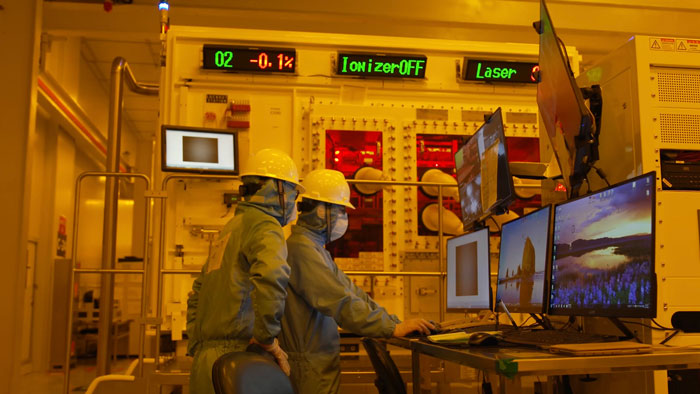
TCL has been on a steady journey of green transformation since our inception in 1981. With green financing, we have built 11 green factories worldwide. These factories have on average recycled and reused 150,800 tons of waste annually, saved over 150 million kilowatt-hours of electricity, and conserved more than 220 million tons of water.
Last year, we also successfully issued our first green bond at over USD 209 million with a coupon rate of 3.3%. All the funds raised are entirely dedicated to the construction of more green factories under TCL's subsidiaries, which are expected to reduce 85,200 tons of carbon dioxide emission annually.
And it doesn’t stop here. TCL will continue to innovate with global partners and integrate sustainable concepts into strategic development to slow down the Earth's warming for a greener future.
The #TCLGreen campaign is a global initiative by TCL to inspire greatness and create a greener planet for all. TCL aims to embrace the path of sustainable development with innovative technology and clean energy solutions.